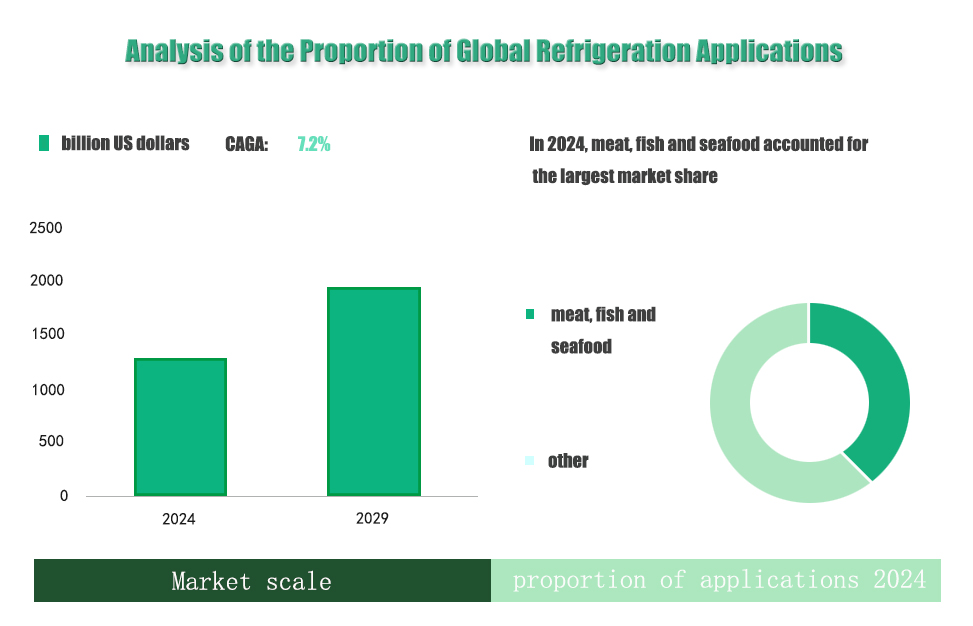The refrigeration industry pertains to the product sector mainly centered around refrigeration. Ice cream freezers, refrigerators, and the like are among its principal products. Its market performance is considerably influenced by multiple factors, with seasonality, policies, and supply and demand exerting particularly notable impacts.
Data shows that the global frozen food market size has reached US$128.03 billion in 2024, and it is expected that the market will grow at a compound annual growth rate of 7.2% during the forecast period from 2024 to 2029.
In terms of seasonal factors, the influence is quite pronounced. During the sweltering summer months, the demand for commercial ice cream surges substantially, spurring the rapid expansion of the refrigeration industry market. Consumers’ strong desire for cold drinks in hot weather leads to a brisk market demand for these products. In contrast, during the winter season, the demand relatively wanes, and sales consequently decline.
The relationship between product supply and demand also constitutes a crucial factor. When there is an oversupply of ice cream freezers and refrigerators in the market, prices are likely to drop, resulting in a reduction in corporate profits. Conversely, if the supply falls short and fails to meet the demand, it may trigger price hikes and even disrupt the operation of the entire frozen food industry chain.
For instance, when a large number of new refrigerators and freezers are mass-produced, causing an oversupply situation, the market price will decline. Therefore, it is essential to pursue innovative development and manufacture branded freezers with distinctive features to boost demand and propel the development of the refrigeration industry.
Certainly, the impact of export tariffs on the refrigeration industry cannot be overlooked. If export tariffs are raised, the export costs for enterprises will increase, potentially leading them to curtail export volumes and instead focus on the domestic market. Conversely, a reduction in tariffs may stimulate exports and broaden the market scope for enterprises. For companies manufacturing ice cream freezers and refrigerators, changes in the export market will directly affect their production and sales strategies.
Moreover, technological progress is also affecting the refrigeration industry. The emergence of novel energy-saving technologies and intelligent control systems can enhance the performance and efficiency of products while reducing operating costs. Consumers’ demand for environmentally friendly and energy-saving products is on the continuous rise, compelling enterprises to continuously innovate and introduce products that better align with market demands.
During periods of economic prosperity, consumers possess stronger purchasing power, and the demand for frozen foods and related equipment also increases. During economic downturns, people may cut back on the consumption of non-essential items, and the refrigeration industry will also experience a certain degree of impact.
In summary, the refrigeration industry, particularly in relation to ice cream freezers and refrigerators, is affected by various factors such as seasonality, product supply and demand, export tariffs, technological progress, and economic conditions. Enterprises need to closely monitor the changes in these factors and promptly adjust their production and sales strategies to adapt to market demands and achieve sustainable development.
Post time: Nov-06-2024 Views:


